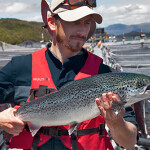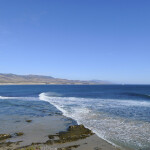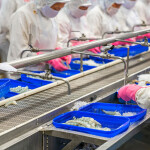SeafoodSource is closely following the sustainable seafood movement by compiling a regular roundup of sector updates about sustainability initiatives and certifications.
- Nomad Foods and Morrisons have joined the "Move to -15°C" movement, committing to reducing their carbon emissions through the consumption of less energy for their freezers.
Feltham, U.K.-headquartered Nomad Foods, which operates the Iglo, Findus, Birds Eye, Aunt Bessie’s, Frikom, Ledo, and La Cocinera brands and which posted EUR 3 billion (USD 3.3 million) in revenue and EUR 535 million (USD 586.3 million) in EBITDA in 2023, said it would change its standard frozen food storage temperature to -15 degrees Celsius, up from -18 degrees Celsius. The change will reduce its freezer energy consumption by 10 percent with no need to reformulate any products, the company said in a press release.
Established in 2023, Move to -15°C aims to reset frozen food temperature standards to reduce greenhouse gases, lower supply chain costs, and secure global food resources. It was founded following the launch of the Three Degrees of Change report that found the change could prevent the creation of 17.7 million metric tons of carbon dioxide per year and cut supply chain costs by at least 5 percent while not compromising food safety in any way.
Nomad joined the movement after conducting an 18-month study that found increasing freezer temperatures for numerous products, including pollock and farmed basa fish fingers and salmon fillets, did not have any negative impact on food safety, texture, or nutrition.
In 2021, Nomad Foods committed to a broader initiative to significantly reduce its greenhouse gas emissions across its operations and supply chain. Nomad Foods’ Chief Executive Officer Stéfan Descheemaeker is now calling on other frozen manufacturers to join the Move to -15°C movement.
“We can’t do this alone, which is why we are calling on other frozen food manufacturers to join us and the Move to -15°C coalition to ensure the full breadth of products within the frozen category are tested at higher temperatures,” Nomad Foods CEO Stéfan Descheemaeker said.
Morrisons, a Bradford, U.K.-based company with nearly 500 supermarkets in the U.K. and GBP 970 million (USD 1.2 billion, EUR 1.1 billion) in EBITDA in 2023, signed on to the initiative on 2 August.
“We now have vastly better freezers and modern technology and monitoring that gives us a precise picture of frozen food temperatures throughout the supply chain,” Morrisons Group Corporate Services Director Ruth McDonald said in a release. “We applaud the Move to -15°C movement for their original thinking and willingness to challenge a long-accepted standard and, in doing so, identify a significant opportunity for positive progress for both the environment and the food industry."
- The AZTI Technology Centre has developed a new method of using DNA testing to facilitate an ecosystem-based approach to fisheries management.
The method performs DNA analysis of the stomach contents of fish instead of using a visual analysis allowing for much faster and more accurate analysis of hundreds of samples simultaneously to obtain a prey inventory for each one.
"Our method represents a precise and reliable way to collect information on who eats whom and with what preference in the ocean, key data to increase our knowledge on the trophic structure of marine ecosystems," AZTI Marine Genetics Researcher Oriol Canals said in a press release. "Increased knowledge on the trophic relationships between marine organisms will facilitate the application of ecosystem-based approaches to fisheries management, ultimately ensuring a sustainable exploitation of marine ecosystems and resources, of high-value for the economy and the fisheries sector.”
The method was successful in creating geospatial and temporal studies of anchovy, sardine, hake, and horse mackerel in the Bay of Biscay and can also be easily adapted for use with other species, according to Canals.
The technique will help fisheries organizations adapt to holistic ecosystem-based management approaches, which factors in fishing pressure along with how different species interact, AZTI said.
- A study published recently in Ocean Sustainability posits a reduction in global overfishing can be a significant contributor to improving marine carbon sequestration.
The study, “Good fisheries management is good carbon management,” found that by enlarging fish populations, more carbon – in the form of fish excrement and carcasses – ends up at the bottom of the ocean.
“Too often, the climate and nature crises are addressed as separate from one another, but overfishing and marine habitat degradation threaten both ocean biodiversity and reduce the ability of the ocean to buffer the impacts of climate change,” International Program on the State of the Ocean Scientific Lead Natalie Andersen said. “This paper illustrates the intrinsic link between protecting biodiversity and supporting the ocean’s ability to mitigate climate change. Stopping overfishing is a positive action that can make a huge difference in the fight to tackle climate change.”
- Researchers at Scotland’s Industrial Biotechnology Innovation Centre (IBioIC) are advancing work on converting sewage sludge into a phosphorus-rich material for farming while preventing algae blooms.
Using a material called biochar to filter sewage can remove phosphorus from marine areas, where it can contribute to the creation of algal blooms that can threaten wild fish stocks and aquaculture operations, according to IBioIC.
“This collaboration demonstrates how one type of waste can be used for the benefit of the natural environment, treating issues like algal blooms which are posing significant challenges as climate change continues and water temperatures rise,” IBioIC Business Engagement Director Liz Fletcher said. “Although the creation of biochar is still in its infancy, we see huge potential for a growing market that could help several industries to reduce waste and adopt more circular processes.”








